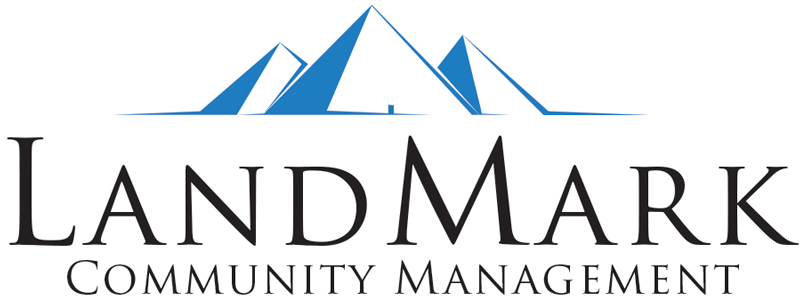An HOA reserve fund can potentially save an association from financial ruin. Unfortunately, far too many communities don’t even know the purpose of a reserve fund, much less have one.
What Is an HOA Reserve Fund?
A reserve fund contains money set aside by a homeowners association or condominium to meet the cost of major repairs and replacements in the future. It is not the same as an operating fund, which is the fund used by an HOA for regular expenses.
While some states require associations to maintain a reserve fund, Texas law does not. That said, state law is not the only consideration for HOAs. Many associations are required by their governing documents to fund reserves. As such, it is important to check your CC&Rs and bylaws to see if your association must maintain a reserve fund.
What Is the Purpose of a Reserve Fund?
A homeowners association reserve fund or condo reserve fund essentially works as a savings account. Associations regularly deposit money into this account to be used for future costs.
Without a reserve fund, an HOA would have no way of paying for major repairs, maintenance, or replacements of common area components. Every asset has an estimated useful life. When that life ends, it must be repaired or replaced. Repairs and replacements cost money, and often a lot of it. Thus, a reserve fund comes in handy.
A reserve fund prevents undue financial burden on the association and its members. It reduces the need for special assessments. If a roof suddenly collapses, a properly funded reserve can cover the cost of repairs or replacement. However, with a reserve fund, the association would be able to levy a hefty special assessment or increase regular dues by a significant amount to meet the financial obligation.
What Can HOA Reserve Funds Be Used For?
Generally, an HOA can use reserve funds to pay for the cost of major repairs and replacements of common area components. However, in some states, strict laws regulate what an HOA may use its reserves for. In California, for instance, an HOA board may borrow from the reserves to meet short-term cash flow needs (Civil Code Section 5515).
An association’s governing documents will also reflect how the board can use HOA reserve funding. Governing documents can differ from one community to another. One HOA may allow the use of reserves for small-scale beautification projects, while another may only allow the use of reserves for major repairs and replacements.
Some common examples of what an HOA may use its reserve fund for include:
- Replacing broken gym equipment
- Repaving of sidewalks or roads
- Swimming pool repairs or retiling
- Major landscaping projects
- Repairing or replacing playground equipment
- Replacing roofs of common areas or buildings
How Much Should Be in HOA Reserves?
An HOA must have no universal dollar amount in its reserves. In general, though, an association’s reserves should have at least 70% of its funding requirement at any time. This helps ensure that an HOA would not be strapped for cash in the event of a major repair or replacement.
A few factors must be considered to determine an HOA’s funding requirement. The first is the number and nature of assets in the association. An HOA with many common areas or components has a higher funding requirement than an HOA with few to no common elements. This is because there is much less to repair or replace.
The second factor to consider is the condition of these elements. If a certain element is brand new, it has a longer estimated useful life. That means it likely won’t need to be replaced or repaired soon.
It is difficult for an HOA board to create a dollar amount based on these factors alone. As such, the board should turn to a professional to conduct a reserve study.
A reserve study involves the inspection of a community’s assets and finances to set a funding plan. This funding plan includes the amount an HOA must have in its reserves to meet its funding requirements and a long-term schedule of potential costs. From this study, an HOA can determine how much it must deposit into its reserves annually.
Is an HOA Reserve Study Required?
Some state laws require associations to conduct a reserve study. Texas is not one of them. Still, it is a good idea to include a study as part of your HOA reserve fund planning. A reserve study can help you gauge your fiscal health and prepare you for the future. Additionally, your governing documents may have reserve study requirements.
Generally, an association should perform a reserve study and update it every 3 to 5 years. This way, you can make sure the study reflects any recent changes. Having a professional conduct the study is also best, as it is not something that just anyone can do.
Proper HOA Reserve Fund Management

Maintaining a reserve fund is only half the battle. To have a financially successful association, an HOA board must also know how to manage its reserves properly.
To do this, developing an HOA reserve fund policy is crucial. This policy should outline the association’s obligation to fund its reserves and conduct a reserve fund (or update) every certain number of years.
The same policy should indicate the board’s obligation to use the reserve fund only for its intended purpose. In that sense, the board should never use the reserves to pay operating expenses unless it only borrows from the fund. The policy should also include guidelines and requirements for borrowing reserve funds.
Finally, the policy should dictate whether or not the HOA can invest its reserves. If investments are permitted, the policy should outline the guidelines for investing reserve funds. Remember that an association’s reserves play a critical role in the community. Thus, an HOA should aim for low-risk and high-liquidity investments.
A Helping Hand
Managing an HOA reserve fund correctly allows you to protect your association’s money. Many HOA boards, though, lack the financial expertise to carry out this task. Consider working with an HOA management company to plan and manage your reserves effectively.
Landmark Community Management offers expert management services to HOAs and condos, including reserve fund management. Call us today at 512-569-5527 or contact us online to learn more!


